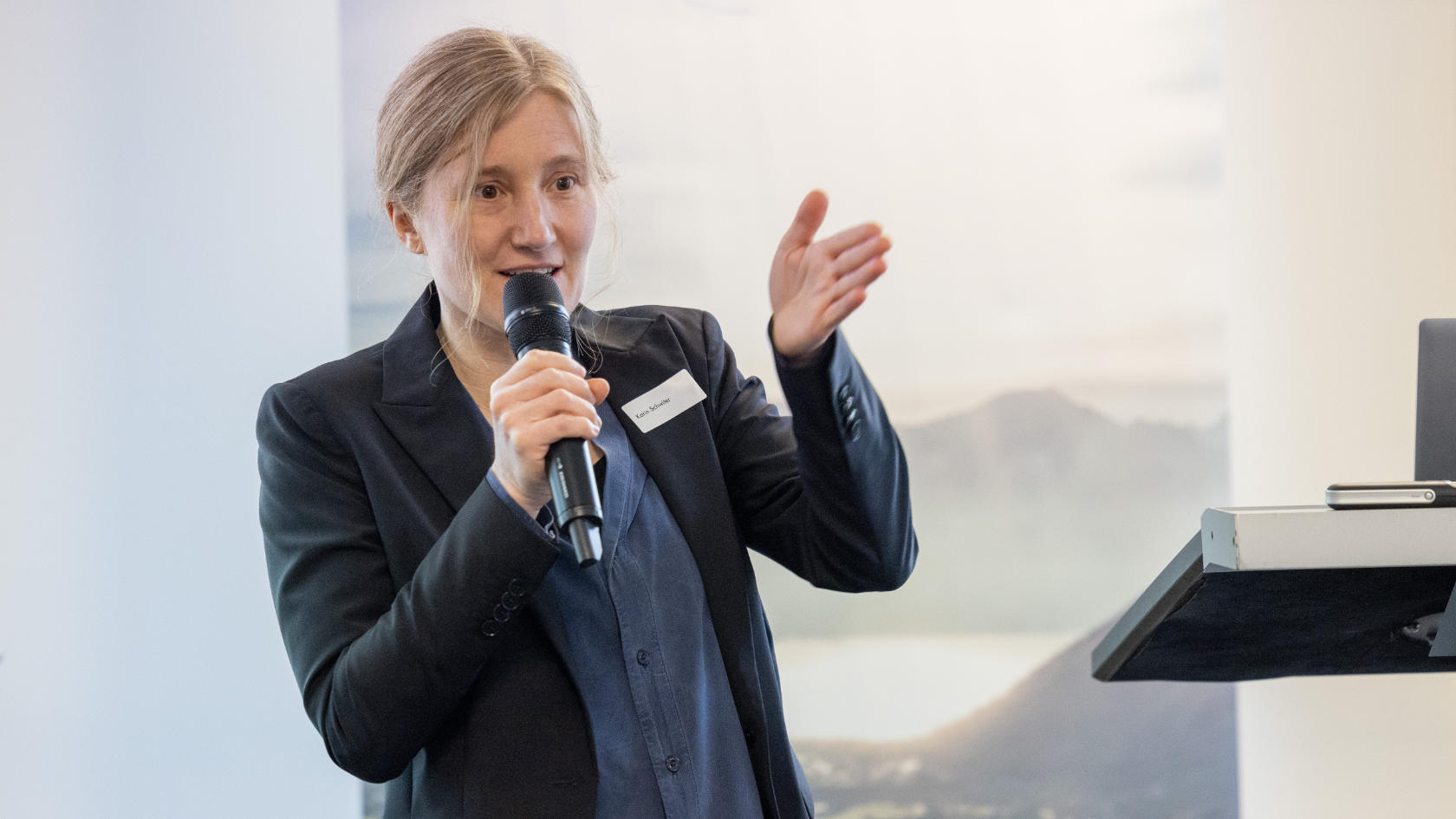The Downside of Part-Time Work
UZH labor geographer Karin Schwiter has been awarded one of the coveted ERC Advanced Grants from the European Research Council. Over the next five years, she plans to study the problem of underemployment in Switzerland, the UK and the Netherlands.

Karin Schwiter is one of the first Swiss researchers to receive a grant from the European Research Council (ERC) following the agreement between Switzerland and the EU. The project “Not Enough Paid Hours: Understanding the Rise of Involuntary Part-Time Employment” by the labor geographer and UZH professor is being funded with one of the prestigious ERC Advanced Grants worth 2.5 million Swiss francs.
Over the next five years, Schwiter and her team will investigate the problem of underemployment and involuntary part-time work in Europe. They will analyze a phenomenon that has received little attention in academia and society so far. “Analyses of labor market developments regularly collect and discuss unemployment figures,” says Schwiter, “but they hardly ever consider the people who have jobs but not enough paid hours to cover housing, food and other basic necessities.” Underemployment particularly affects women and migrants.
On-call work
The number of these underemployed workers is steadily rising in Europe. “Employment contracts are increasingly being based on on-call work, and working hours are defined flexibly in contracts,” says the labor geographer. “This can mean that someone is always on call for assignments and still ends up with too few hours at the end of the week to earn a living wage.” One example of such on-call work is platform-based work – jobs arranged at short notice by digital platforms such as Uber and the like.
However, the problem is not limited to the private sector, it also affects jobs in the public sector. “In the area of extracurricular activities, such as classroom assistance or lunchtime supervision, new employment relationships are created that often require fragmented assignments and ultimately do not provide a living wage.” As a result, involuntarily underemployed people often need to find second or third jobs to make ends meet. Their situation is challenging not only from a financial point of view, but also because the uncertainties of flexible work and juggling multiple jobs can negatively impact mental health and well-being.
Solutions for policymakers and businesses
“Part-time work is currently being discussed very positively in the public sector – and it's great if it allows people to better balance work, leisure, and family life,” says Karin Schwiter. “But there’s also the other side of the coin – the people who appear in the statistics as part-time workers but who are involuntarily working part-time.” The labor geographer will address the downsides of part-time work in her ERC project. To this end, she will analyze and compare the situation in the UK, the Netherlands, and Switzerland – the three European countries with the highest proportion of part-time workers – in detail. “We want to develop a comprehensive perspective on the issue by talking to workers, employers, government officials, and experts on local labor markets in various industries,” says Karin Schwiter, “and we want to learn from and with each other.”
Over the next five years, Schwiter and her team aim to raise awareness in academia and society of the problems of underemployment and involuntary part-time work. They also hope to identify the barriers and mechanisms that prevent full-time employment that provides a living wage in certain sectors and develop proposals for solutions for policymakers and businesses.
Roger Nickl, UZH Communications
Image: Meier & Kramer